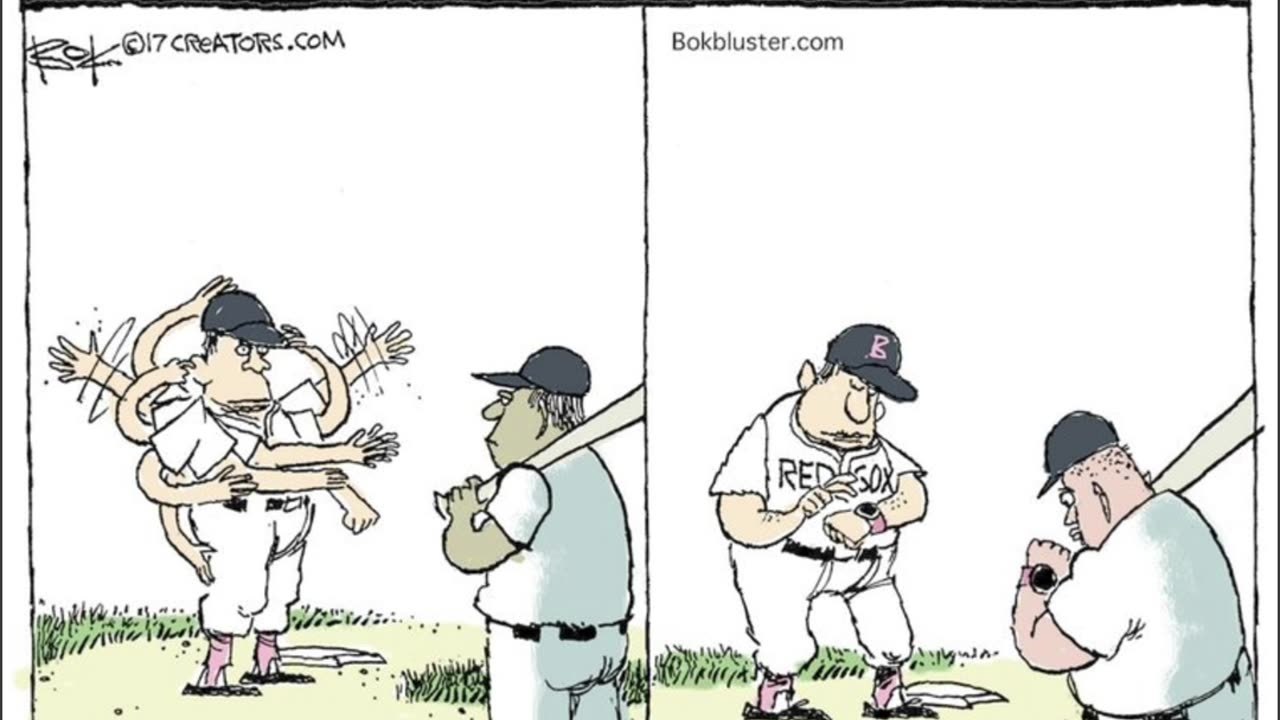Premium Only Content

Sign-Stealing 2.0: Cyber Espionage Is the New PED
#SignStealing2_0 #CyberSportsScandal
#DigitalCheating #FairPlayVsHackPlay
#SportsEspionage #DataDrivenDeception
#GameIntegrity #TechVsTradition #EncryptedPlaybooks #AIvsAthletes
In the age of analytics and hyper-digitized playbooks, sign-stealing has evolved from sideline sleuthing to full-blown cyber-espionage. Once limited to decoding hand signals or rifling through discarded game plans, today’s tactics include hacking internal databases, intercepting encrypted communications, and deploying covert operatives to harvest strategic intel. The infamous Michigan football scandal and Formula 1’s “Spygate” are just two examples of how digital vulnerabilities can be weaponized to tilt the playing field. As sports teams increasingly rely on proprietary data for competitive advantage, the stakes—and the risks—have never been higher.
To counter this, leagues and organizations have rolled out a suite of digital safeguards. These include encrypted communication systems, blockchain-based data tracking, and stricter protocols around scouting and video analysis. The NCAA, for instance, prohibits off-campus, in-person scouting and the use of unauthorized technology to capture opponent signals. Meanwhile, professional leagues are investing in cybersecurity teams and AI-driven monitoring tools to detect suspicious activity. These measures represent a significant step forward—but they’re only as effective as the enforcement behind them.
Unfortunately, enforcement remains patchy and reactive. Legal frameworks like the Defend Trade Secrets Act (DTSA) and Economic Espionage Act (EEA) offer some protection, but they’re often too vague or slow-moving to deter real-time cheating. Moreover, the burden of proof in digital espionage cases is notoriously high. Without clear evidence of unauthorized access or malicious intent, teams can exploit gray areas to gain an edge without facing consequences. This creates a dangerous incentive structure: cheat smart enough, and you might just get away with it.
The deeper issue is cultural. In many sports, sign-stealing is still viewed as clever gamesmanship rather than unethical sabotage. Coaches openly admit to decoding signals as part of their prep, and some even celebrate it as a badge of strategic honor. Until the culture shifts to treat digital espionage with the same seriousness as doping or match-fixing, technical safeguards alone won’t be enough. Competitive fairness demands not just better tech, but a shared commitment to integrity.
In the end, Sign-Stealing 2.0 is a wake-up call for the sports world. Digital safeguards are improving, but they lag behind the ingenuity of bad actors. To truly protect fairness, leagues must pair technological defenses with robust enforcement and cultural reform. Otherwise, the invisible game behind the game will continue to undermine the spirit of competition.
-
 LIVE
LIVE
Dr Disrespect
8 hours ago🔴LIVE - DR DISRESPECT - BATTLEFIELD 6 KILL CHALLENGE - VS VISS
1,125 watching -
 16:16
16:16
Robbi On The Record
3 days ago $8.69 earnedThe Dark History of Halloween | What You Should Know
29.5K20 -
 LIVE
LIVE
Side Scrollers Podcast
3 days ago🔴FIRST EVER RUMBLE SUB-A-THON🔴DAY 3🔴PLAYING MIKE TYSON'S PUNCH OUT TILL I WIN!
1,312 watching -
 LIVE
LIVE
Quite Frankly
5 hours agoVatican Rumors, Demon Hunting, Spooky Extras | Leo Zagami 10/22/25
558 watching -
 LIVE
LIVE
The Mike Schwartz Show
2 hours agoTHE MIKE SCHWARTZ SHOW Evening Edition 10-22-2025
3,675 watching -
 1:27:14
1:27:14
Kim Iversen
3 hours agoCBS Boss Colluded With Israel to SPY on Americans | Trump Keeps Bombing Fisheman
34.5K77 -
 1:02:18
1:02:18
TheCrucible
2 hours agoThe Extravaganza! EP: 58 with Guest Co-Host: Rob Noerr (10/22/25)
54.5K6 -
 LIVE
LIVE
StoneMountain64
6 hours agoBattlefield 6 New Season Details NO 'BR' MENTIONED YET
41 watching -
 17:47
17:47
Bearing
11 hours agoThe Most ANNOYING Podcast EVER 💥 ROSIE O’DONNELL & ABBIE CHATFIELD Whinge About EVERYTHING 🤡
5.24K22 -
 LIVE
LIVE
GritsGG
4 hours agoRanked Top 70! Most Wins in WORLD! 3744+!
69 watching